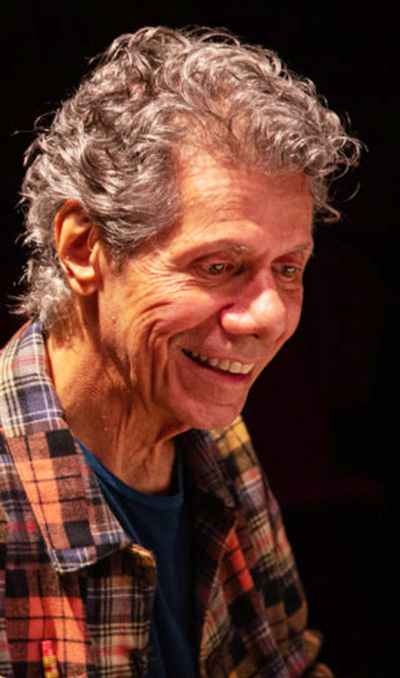With a musical career spanning over five decades and a number of laurels to your name, what according to you has been the greatest highlight of your journey so far?
An impossible question to answer since there have been simply so many – and they continue to happen each year.
You’ve continuously experimented with your music and have often been referred to as one of the pioneers of ‘Jazz-Fusion’. What are your thoughts on these classifications in music? Which direction do you see your sound moving in now?
Well, I’ve never thought in terms of “genres” in music. When I speak with my friends about music, we only use terms like “jazz” and “classical” in a very very general sense. Usually adding “What people consider as . . . . . . .”
My direction is toward more and more communication with finer and finer aesthetics.
You have a vast repertoire of songs that you’ve composed over the years. How does it feel when you revisit one of your older compositions?
Compositions – mine or others – are usually jumping off points for improvisation. The music must always be delivered Now. So, no matter the age of the composition – or when it was written. The music is Now.
The music landscape has been rapidly changing with music schools becoming commonplace all over the world. With more people now opting to pursue music as a career, what advice would you like to share with aspiring musicians? How should one navigate between technique, theory, and improvisation?
Each aspiring artist has the wonderful task of finding his own tastes and then having the courage to make his art that way. It’s not possible to teach creativity. It’s simply innate in us all.
So, my cheap advice is to always keep your own judgment about what sounds good and what does not sound good.
You’ve had a brief encounter with Indian (Hindustani) music in the past when you’ve played with tabla maestro Zakir Hussain. What attracts you most to Hindustani Classical music? Do you see yourself dabbling in any collaboration with Indian musicians in the future?
I must learn more about the music of India. I know it as a feeling and a sound and a rhythm. My favorite Indian music has been John McLaughlin’s Shakti, of which Maestro Zakir was an integral part. This “fusion” of elements is beautiful.
You will be touring India for the first time in November 2018. What made you add India to your performance itinerary? What excites you most about this tour?
I’m so looking forward to seeing a bit of India after all these years of being influenced by India’s long spiritual history. I’m looking forward to playing for Indian audiences!
Could you tell us about the solo set that you will be performing at your shows in Mumbai and New Delhi?
I’ve chosen a number of composers that I love. I’ve been experimenting at “mashing together” various composers from different eras and different sounds – and using these compositions to blend together a kind of journey.
Rapid Fire Questions:
Your biggest inspiration?
Your
The top five songs currently on your playlist?
Your
Upcoming musicians to watch out for?
Your most memorable performance?
The answer to all of these Rapid Fire Q’s is: too many to
Thank you Taniya for your questions and interest,
🎵 Chick

